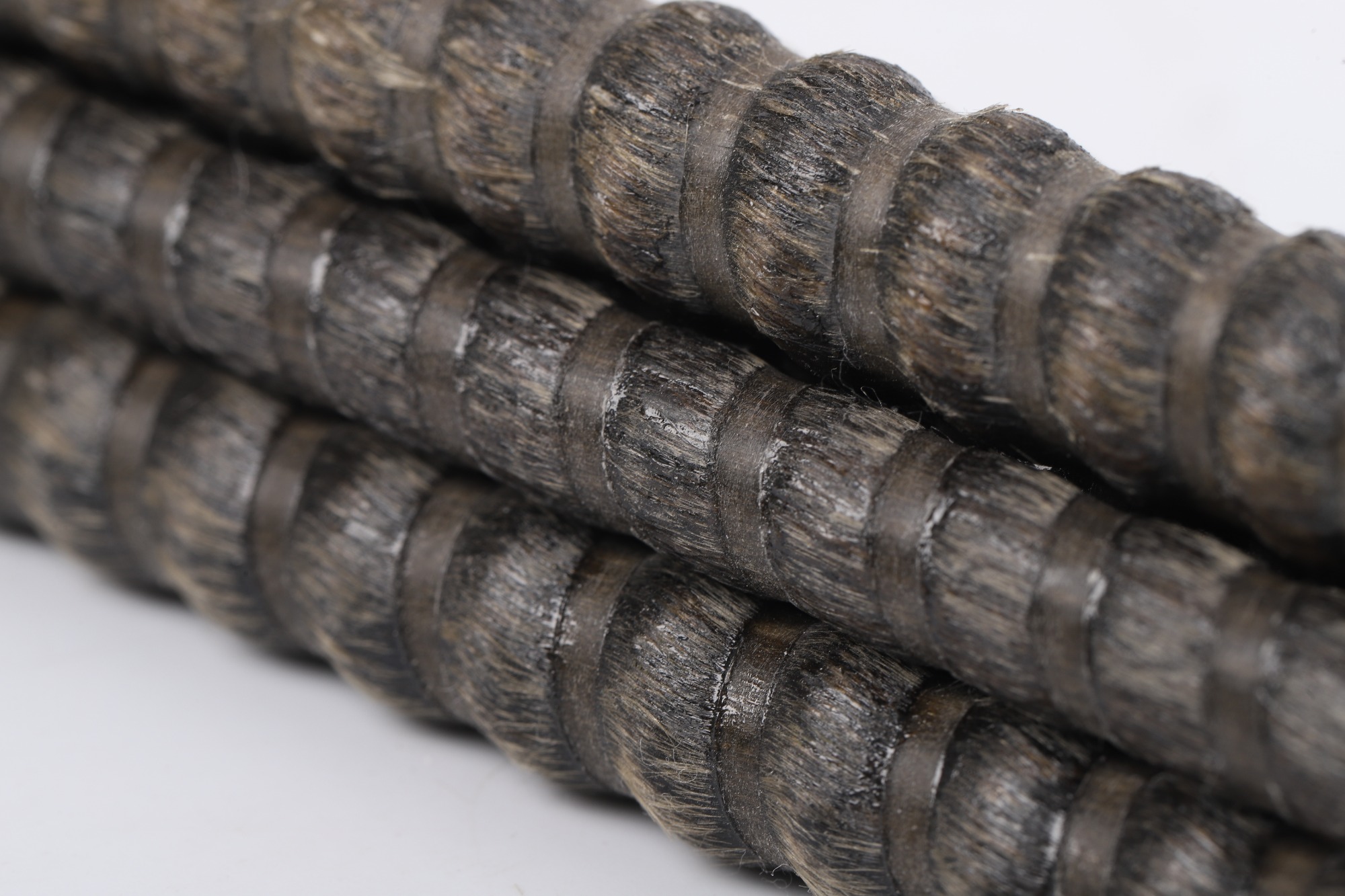- April 2, 2025
- Posted by: wellcoindustries
- Category: Rebar
Choosing the right rebar material is crucial for any construction project. While steel rebar has dominated construction for decades, basalt composite rebar is emerging as a powerful alternative due to its unique benefits. Understanding the differences between these two materials can help you decide which one suits your project’s specific needs, budget, and sustainability goals.

What is Basalt Composite Rebar?
Composition and Manufacturing Process
Basalt composite rebar is created from basalt fiber, derived from volcanic rock. These fibers are mixed with epoxy resins to produce a high-strength composite material. The manufacturing process involves melting basalt rocks, spinning them into fibers, and then embedding these fibers in resin to form rebar rods.
Key Characteristics and Properties
Basalt composite rebar boasts:
-
High tensile strength comparable or superior to steel
-
Exceptional corrosion resistance
-
Lightweight nature facilitating easy handling
-
Excellent thermal insulation properties
Basalt Composite Rebar vs. Steel Rebar: Detailed Comparison
Strength and Durability
Tensile Strength:
-
Basalt composite rebar has tensile strength ranging between 1000–1200 MPa, which is equal to or greater than traditional steel rebar (500–700 MPa).
Corrosion Resistance:
-
Unlike steel rebar, basalt composite rebar does not rust or corrode, even in highly corrosive environments such as marine structures or roadways exposed to deicing salts.
Weight and Handling
Ease of Transportation and Installation:
-
Basalt rebar weighs approximately 4 times less than steel rebar, making transportation and installation significantly easier and quicker.
-
Workers can carry and maneuver basalt rebar without heavy machinery, reducing project timelines and labor costs.
Benefits Related to Worker Safety:
-
Lightweight basalt rebar minimizes risks of physical strain and injuries, improving overall worker safety compared to heavy steel rebar.
Cost Considerations
Initial Investment vs. Long-term Savings:
-
While basalt composite rebar may have higher upfront costs compared to steel, it reduces long-term expenses due to minimal maintenance requirements and prolonged structural life.
Maintenance and Lifecycle Costs:
-
Steel rebar is susceptible to rust, requiring ongoing maintenance or eventual replacement. Conversely, basalt composite rebar’s resistance to corrosion ensures reduced lifecycle costs and fewer maintenance requirements.
Environmental Impact
Sustainability Benefits:
-
Basalt rebar production emits significantly fewer greenhouse gases compared to steel manufacturing, aligning with sustainability goals and reducing carbon footprints.
Environmental Drawbacks of Steel:
-
Steel manufacturing is energy-intensive and generates substantial carbon emissions, making basalt composite rebar a more eco-friendly choice.
Ideal Applications for Basalt Composite Rebar
-
Infrastructure: Ideal for bridges, highways, and tunnels due to its superior durability and corrosion resistance.
-
Marine Structures: Offers unmatched corrosion resistance in seawater environments.
-
Residential and Commercial Construction: Preferred in projects prioritizing long-term durability and sustainability.
Limitations and Considerations
-
Temperature and Fire Resistance: Basalt composite rebar has lower fire resistance compared to steel; it may lose strength when exposed to extremely high temperatures.
-
Availability and Industry Acceptance: Currently less widespread compared to steel, potentially affecting availability and industry familiarity. Ensure suppliers and contractors have experience with basalt composite materials before committing.
Conclusion
In comparing basalt composite rebar vs. steel rebar, the choice depends on project requirements, budget, and environmental considerations. Basalt composite rebar emerges as a robust, durable, lightweight, and eco-friendly alternative to traditional steel, especially suitable for structures facing corrosive environments or sustainability mandates.
Evaluate your project’s specific needs and consider basalt composite rebar as a valuable alternative to traditional steel. If you’ve already worked with basalt composite rebar or have questions about integrating it into your projects, share your experiences or reach out for professional guidance. Your decision today can lead to stronger, more sustainable structures tomorrow.
